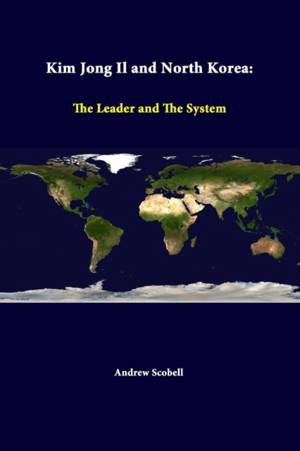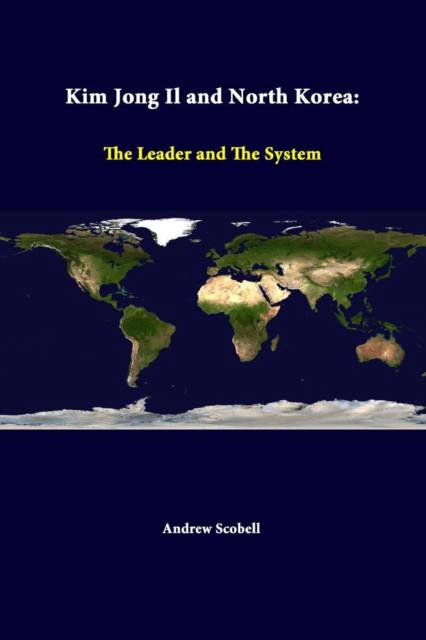
- Afhalen na 1 uur in een winkel met voorraad
- Gratis thuislevering in België vanaf € 30
- Ruim aanbod met 7 miljoen producten
- Afhalen na 1 uur in een winkel met voorraad
- Gratis thuislevering in België vanaf € 30
- Ruim aanbod met 7 miljoen producten
Zoeken
Kim Jong IL And North Korea
The Leader And The System
Andrew Scobell, Strategic Studies Institute
Paperback | Engels
€ 21,45
+ 42 punten
Omschrijving
In the first decade of the 21st century, few national security challenges facing the United States are as vexing as that posed by North Korea. North Korea is both a paradox and an enigma. It is a paradox because on the one hand, by some measures it appears to be a very powerful state-possessing the world's fourth largest armed forces, a sizeable arsenal of ballistic missiles, and a worrying nuclear program-but on the other hand, it is an economic basket case in terms of agricultural output, industrial production, and foreign trade exports. North Korea is also an enigma because virtually every aspect of the Pyongyang regime is mysterious and puzzling. In short, North Korea is difficult for Americans to understand and analyze. This difficulty begins with confusion about what kind of political system North Korea has and what kind of man leads it. In this monograph, Andrew Scobell explores Pyongyang's political dynamics and seeks to shed light on the political system of North Korea and its leader.
Specificaties
Betrokkenen
- Auteur(s):
- Uitgeverij:
Inhoud
- Aantal bladzijden:
- 60
- Taal:
- Engels
Eigenschappen
- Productcode (EAN):
- 9781312307513
- Verschijningsdatum:
- 25/06/2014
- Uitvoering:
- Paperback
- Formaat:
- Trade paperback (VS)
- Afmetingen:
- 152 mm x 229 mm
- Gewicht:
- 99 g

Alleen bij Standaard Boekhandel
+ 42 punten op je klantenkaart van Standaard Boekhandel
Beoordelingen
We publiceren alleen reviews die voldoen aan de voorwaarden voor reviews. Bekijk onze voorwaarden voor reviews.











